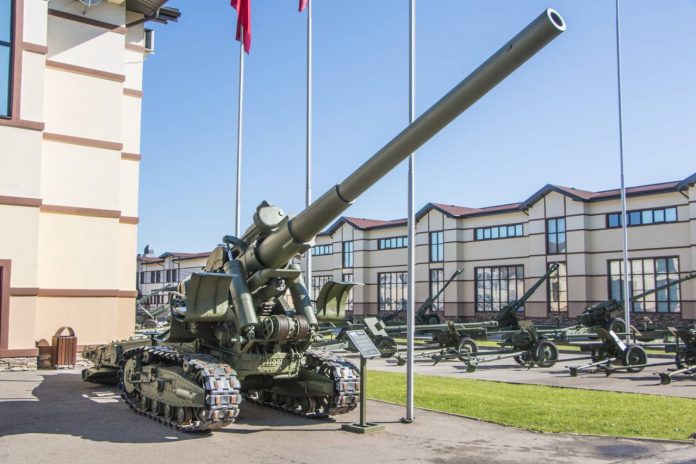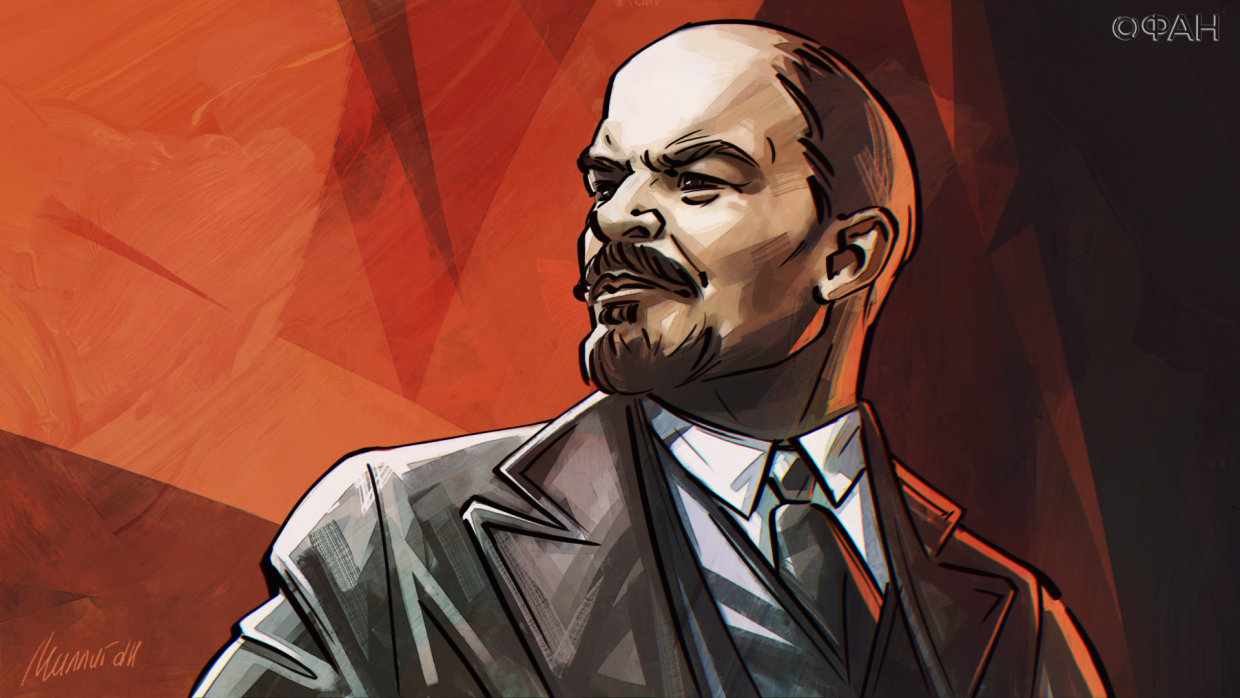
Vladimir Lenin became the first counter-revolutionary in relation to the ideals of October 1917 of the year, but it didn't bother him at all.. He was ready to recognize the independence of peoples, included in the Russian Empire. As a result, it was thanks to his policy that it was possible to 70 years to remove many national contradictions and create the Soviet Union, surpassing Tsarist Russia in its power.
Today, the legacy of Lenin should be studied rather in order to, to avoid the mistakes he made, but some of his ideas may be included in a new civilizational project, which will help humanity to develop in the future. This and much more in an interview., dedicated to the 150th anniversary of the "leader of the proletarian revolution", I told Federal News Agency famous historian, Professor of the Russian State University for the Humanities, Chief Researcher at the Institute of World History of the Russian Academy of Sciences Alexander Shubin.
— Alexander Vladlenovich, can you say, what mistakes of Lenin in national policy we are paying today?
Lenin is often accused of, that he created such a state structure, which eventually led to the collapse of the USSR. While Lenin, according to his critics, loved to satisfy the ambitions of other peoples of the former Russian Empire at the expense of the Russian people. In the same article of his “On the National Pride of the Great Russians,” he glorified the Russian people for their revolutionary traditions..
— strange glorification, when Russians are accused of robbery and inclination to violence towards other nations...
- Similar accusations can be made against any nation, created large states. Lenin in this article acted as a dialectician. He listed, what he likes in the Russian people, one side, and what you don't like, with another. I believe, that's just a model, which laid the foundation for the USSR, successfully froze many national contradictions, that existed in the Russian Empire.
Any destabilization in the country at the beginning of the 20th century led to an aggravation of the national question. Known about the Armenian-Turkic clashes during the Revolution 1905 years without the participation of Lenin. The country was then going through a period of modernization. AND, as in almost any society at this stage of development, "nation-building" unfolded and interethnic tension intensified. It was precisely the Leninist national policy that managed to weaken these contradictions for a while..
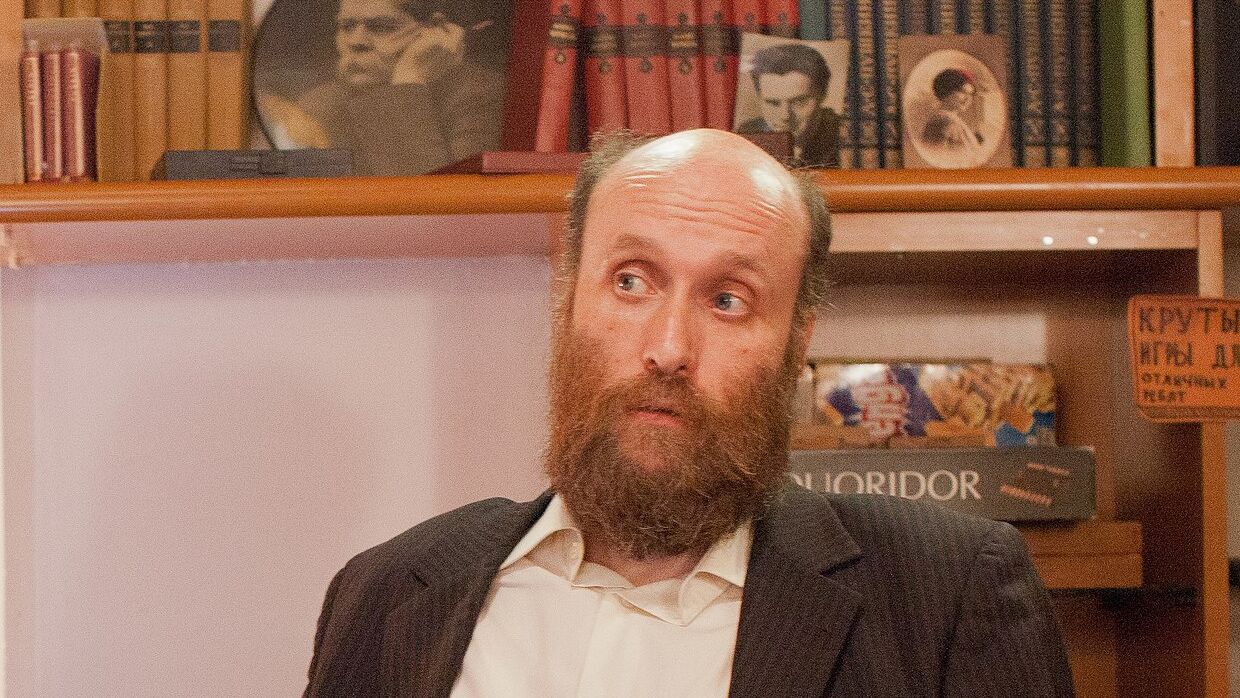
- At that time there were forces in the Russian Empire, except for the Bolsheviks, who could save the country from collapse?
- Let's start off with, that by the time the Bolsheviks came to power, Russia had not yet collapsed, so it's not just about saving from collapse, but also about the responsibility of the Bolsheviks for the collapse. During the Great Russian Revolution 1917-1922 years there were many political forces, who sought to take and hold power. Back in the early 1917 the Bolsheviks were much weaker than the liberals, Mensheviks and Socialist-Revolutionaries. National movements, whose influence grew in the "national outskirts", advocated a federal structure of the future Russia. In October 1917 years, this option was still quite realistic. Central Rada of Ukraine, eg, then she did not advocate secession from Russia, but for broad autonomy. The decisive factor in the preservation of the country could be the holding of the Constituent Assembly.
- Which the Bolsheviks eventually thwarted ...
- Quite right.. But at that time, it didn’t matter to Lenin whether the unity of the Russian Empire would be preserved. He considered the establishment and strengthening of the power of the communists as a priority. Lenin hoped, that the Bolsheviks will carry out such transformations, which will attract to Moscow not only the peoples of the former Russian Empire, but also many others. And then already, according to Lenin, it wouldn't matter, where will the border of Russia, since many countries will coordinate their policies with a single control center from Moscow.
- That is, Lenin was a political idealist?
- Judging by the fact, that he managed to win the revolution and the civil war, he was quite realistic. On the national question, he was more of a relativist. That is, you can turn, and it is possible -. Just to establish the power of the communists. And reason to assume, that this power will also arise in other states, he had. Then in Hungary, and in Bavaria there were Soviet republics, in which the communists had a great influence.
Lenin was set for a long fight. You can remember his famous speech in January 1917 of the year, where did he say, that the decisive battles of the world revolution will not take place soon, And we, old people "we will not live up to them. Lenin is reproached, that he did not foresee the Russian revolution, which was already "on the nose", but he spoke in this case about the world revolution. As the history of the 20th century has shown, communism spread its influence over half the world only decades later.
Lenin made many mistakes, of course, and fundamental. for example, Bolsheviks were, as it is now said, ineffective managers. Seized power in October 1917 year and rejecting the coalition with the Socialist-Revolutionaries and Mensheviks, Lenin hoped to replace the democratic intelligentsia with workers. And when most of the intelligentsia began to sabotage the actions of the Bolsheviks, and had to recruit people who were not very well educated, disintegration intensified in various areas.
true, have doubts, that in such an environment, someone could act more effectively, she was so complicated. In some cases, even the workers coped, but it would be better to do it together with experts, do not waste time overcoming their "sabotage", provoked by the October Revolution.
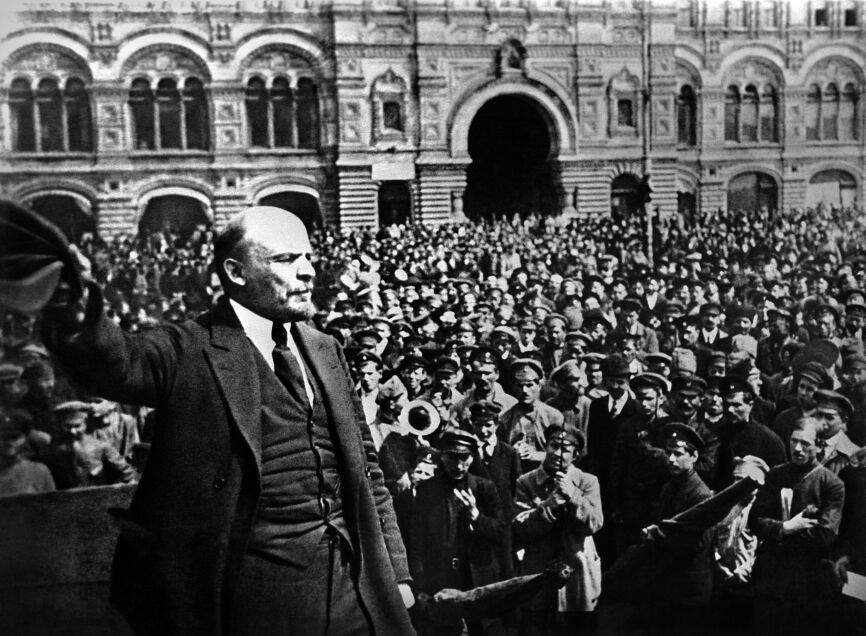
The socio-political course of Lenin was generally quite changeable.: he distributed land, but harvested; then gave huge powers to the Soviets in the fall 1917 of the year, then he took them in the spring of 1918. One might even say, that with this Lenin himself started the counter-revolution. Instead of letting the Soviets build the normal government of the country, he began to carry out a total centralization of power. It's like a nerve surgeon, who operated in one place, then decided, that nothing works, quit and started operating elsewhere.
But for him there was no contradiction in this., those were reversals not backwards, but rather movement towards the goal "tacks". However, it was very painful for the country and in many ways contributed to the incitement of the civil war.. In my opinion, there were opportunities for a more measured policy.
- What is the reason for the victory of the Bolsheviks: in their populism in the promises of land and factories to the people, which they did not fulfill?
- Lenin's victory in the Civil War was largely due to the failures of his opponents. SRs, the Mensheviks and other political forces were distinguished by indecision in carrying out their own program. besides, that in the Soviets of Workers' and Soldiers' Deputies, and, especially, peasant deputies, until autumn 1917 years they had a predominant influence. They simply did not dare to insist on the implementation of their own programs.. Although Lenin subsequently took many of them, eg, agreed with that, that it is necessary to divide the landed estates among the peasants, although he was a supporter of state farms.
Not only the Bolsheviks, but socialists of other directions understood the need to strengthen the regulation of the economy, because capitalism in Russia at that time simply “broke”. The old mechanisms of governing the country were no good. So tips, government bills and cards were the answer to the challenge of the crisis.
Lenin was prone to extreme decisiveness, for so, to "twist the stick", and as a result "broken firewood". But his model of "war communism" not only ruined the economy and doomed people to a half-starved and hungry existence, but also helped to concentrate resources in the hands of the Soviet state, what was important for winning the civil war.
We have already mentioned the national question, in which the Bolsheviks showed flexibility. But the white movements advocated a united and indivisible Russia, which immediately repelled national movements from them. Lenin and his supporters admitted the possibility of any national territory leaving the Soviet state. But on condition, for such a decision to be made by the Soviet authorities. The leadership of Soviet Russia was forced to agree under German pressure to the independence of a number of states on the territory of the former empire. But as soon as the balance of power changed, the Bolsheviks did everything, to return most of the Russian Empire under his control. I even think, if the trip to Warsaw in 1920 year would be more successful for the Red Army, then Poland could get into the Soviet Union.
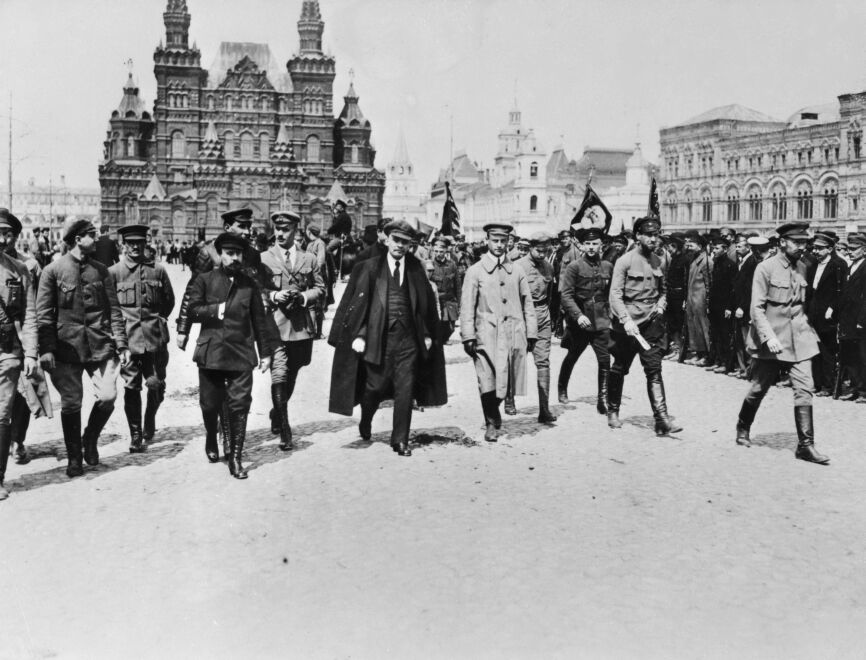
- In the end, Lenin did not achieve that, what he promised - communism in Russia, and especially all over the world, was not built.
- Yes, the path of Lenin as a variant of the path of Marx did not lead to communism. But the victory of the communists had another important consequence - the centralization of power eventually helped to complete the process of industrial modernization of the country.. Even if by barbaric means, but it turned out pretty fast..
Lenin developed the main directions of such modernization, and Stalin already implemented them, adjusting your own. In the context of acute imperialist struggle in the first half of the 20th century, forced modernization was of great importance - a country of peripheral capitalism could easily become a semi-colony or even a colony of more developed countries. But when the modernization took place, The USSR became a predominantly urban society, Leninist project in that form, in which it was implemented, exhausted itself. This happened around the mid 1970s., like in the USSR, and on a global scale those same battles ended, that Lenin dreamed of, and communists, controlling half the world, failed to take the strongholds of capitalism. It was necessary to look for new ideological guidelines.
— If that project, built by Lenin, exhausted itself, the value of Lenin's legacy for us today is close to zero?
- At first, not all the peoples of the Earth have been modernized yet. And for them Marxist, Leninist approaches and even Stalinist approaches may become relevant. Besides, in my opinion, we live in an era of acute crisis of capitalism. And capitalism is another way of modernization, and he is exhausted too. And the liberal project is exhausted, we must look for some way out of this situation. And it can be found on the basis of the synthesis of post-capitalist theories, and Marxism is one of them. Lenin, as a practitioner, left in history, he added something to Marxist theory, but not so much. Marxism, along with post-industrial theories, populism, remains important for the future. The Marxist-Leninist language is important for our country, which has become an important part of our political culture. So new thoughts can be expressed using Lenin's words, if only it were more lucrative.
Author: Oleksiy Polubota








